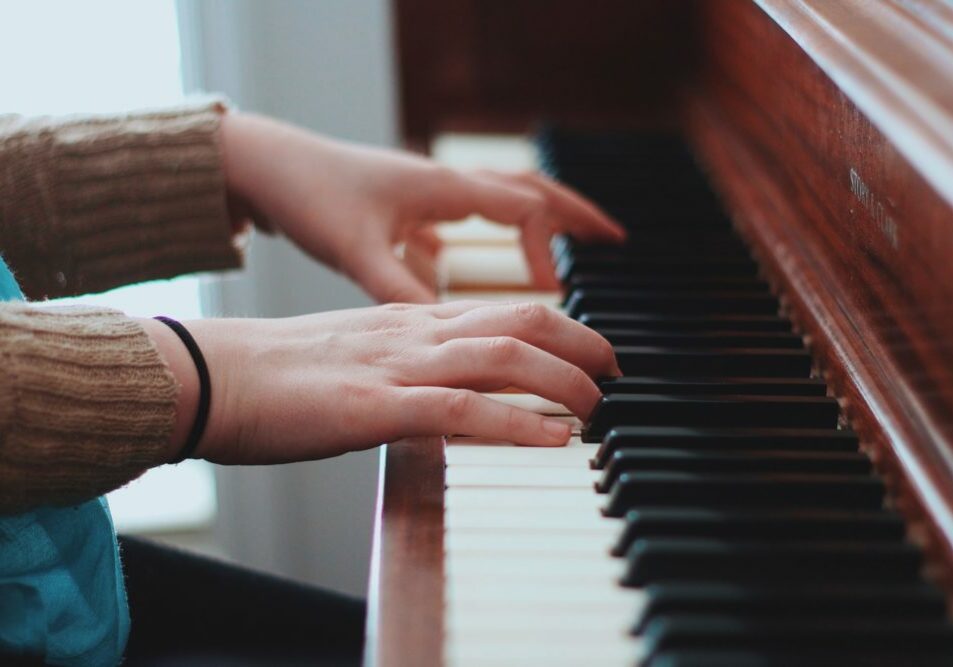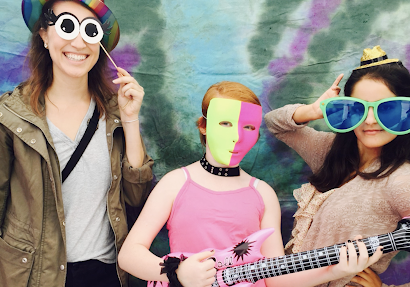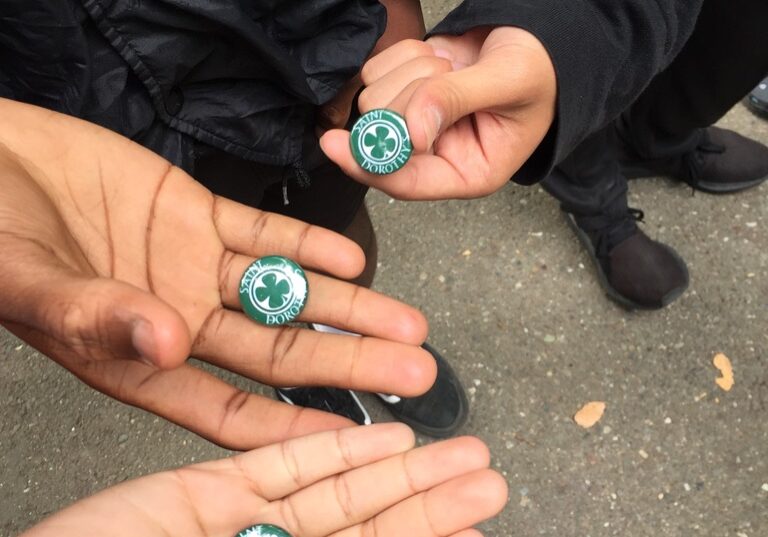Braid Mission
Blog
Remembering the Keys

When I was six years old, my mom claimed an old upright piano that a local elementary school was giving away and signed me up for lessons.
I took piano lessons for ten years, until I was a sophomore in high school. By that time, homework and friends and other activities were demanding more of my time and interest, and I rarely had the time or the will to practice the piano.
While I’ve stayed involved with music over the years by singing and playing my flute with various choirs and ensembles, in my head I ceased being a pianist when I was 16. Because I hadn’t stuck with the piano, I assumed it hadn’t stuck with me, other than providing a good foundation for my other musical pursuits.
But recently my husband and I bought a used clavinova off of Craigslist (a clavinova is a fancy electric keyboard that plays and looks like a piano but is much easier to move).
Which is how last month I came to be sitting down with a Beethoven sonata, more than 20 years after I had last played it.
I expected a train wreck, and instead I was pleasantly surprised at how easily the experience of playing the piano came back to me – almost like riding the proverbial bike. My fingers played chords and runs and trills almost of their own accord, as if the music had been stored up in my bones for all those years.
I’ve come to realize that this has little to do with me, and little to do with Beethoven. Rather, it is almost entirely due to my piano teachers over the years.
There were several, starting with Miss Stansberry, who taught me the basics: the names of notes and how to hold my hands and how to play my first song, “Mississippi Hot Dog.” Mrs. Barger was the organist at my church and worked with me a lot on connecting phrases without relying on the pedal too much; Mrs. Froemke encouraged me to be more expressive in my playing; Dr. Luther helped me (almost) master a Chopin polonaise that literally stretched my hands to a larger size.
As I have been re-acquainting myself with the piano over the past couple weeks, I have thought over and over of these faithful teachers. They only occasionally reprimanded me for not practicing enough (even though I never, ever practiced enough). Each of them was a wonderful musician in her own right, modeling positive habits and ways to grow. And week in, week out throughout my childhood they continually reinforced those best practices. When I made a mistake, they offered a pointer for something that would make it a little easier, and I got to try again.
Today I can sit down at a keyboard and immerse myself in the music because all those good habits and technical skills gradually became ingrained in me over a decade of patient instruction. Back then, practicing and going to lessons seemed like a lot of work, but now when I sit down at the piano, I mostly just enjoy myself.
I’m sure I could have done more with the piano if I had been more dedicated, but I never aspired to being a concert pianist. Neither did my piano teachers have that as an expectation or a goal for me. Nevertheless, when I was under their care, they made sure that in our time together I was learning and growing and playing to the best of my ability, from “Mississippi Hot Dog” to Rachmaninoff.
One definition of a mentor is someone who sees potential in you that you can’t see yourself, and who cultivates that potential in ways that are more significant than they appear in the moment.
I have no doubt that many years from now our youth will recognize some ability or habit in themselves that was cultivated by their mentors’ patience and presence from week to week. It will likely be something that they never said thank you for at the time, because they couldn’t recognize it in the moment. I think that mentoring – much like piano instruction – often operates in geologic time, shaping a young life so gradually it almost can’t be seen. It is slow and patient work, but the effects will last a lifetime.



